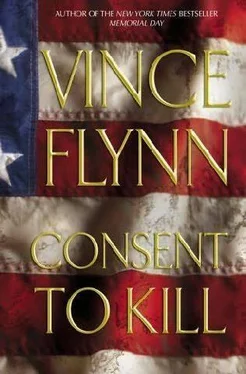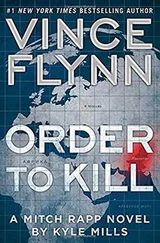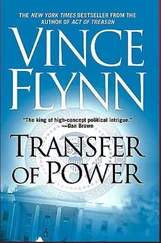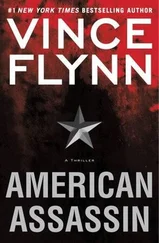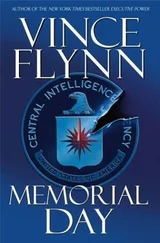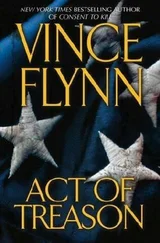It was also decided at Mitch's urging that Stevey didn't need to tag the runner. All he had to do was catch the ball and touch the plate. This way there would be no collisions with kids twice his little brother's size. Everything had gone fine that summer until Bert Duser, the fat neighborhood bully, decided to steamroll the minute and neutral catcher. Mitch had caught a fly ball on the run in shallow center field and one-hopped it on a line to home plate. Duser was on third and tried to tag. In direct relation to his size Duser was very slow. Knowing he was out with a good ten feet to go Duser brought up his elbows and nailed little Stevey. Rapp remembered his little brother's black athletic glasses flying up in the air and the tiny white-haired catcher going ass over teakettle into the backstop.
What happened next became the stuff of neighborhood legend. Mitch was ten, Duser was twelve. Duser was half a head taller and at least twenty pounds heavier, and no one ever challenged him, but on this sunny summer day none of that mattered. After his father's death, Mitch took his oath to protect his little brother very seriously. Overcome with rage, he broke into a full sprint. Somewhere between second base and home plate he threw his glove to the ground. He didn't remember this, but it was recounted to him in great detail later. He also didn't remember screaming like an Indian on the warpath, but that's what his friends told him. He did remember leaving his feet and hitting Duser like a human missile. After that there was a flurry of punches thrown, all by Mitch, and then there was a lot of blood, all of it Duser's.
It ended with Duser running home in tears, and Mitch getting grounded when Mrs. Duser showed up on their doorstep with her bloodied son. Mitch didn't argue with his mother much, but he remembered saying some pretty mean things that day-most of it having to do with how his dad would have handled Mrs. Duser if he'd still been around. Not Mom, though, she was a Jesus-loving, turn-the-other-cheek Lutheran. Dad, on the other hand, had been an eye-for-an-eye God-fearing Catholic. Mom was New Testament, and Dad was Old Testament. Mitch was decidedly more in his father's camp than his mother's, and rather than suffer an unjust punishment he ran away from home. The next morning a Fairfax County deputy found him sleeping in Turkey Run Park and brought him home. When he saw what he'd put his mother through, he was sufficiently shamed to stay put until he graduated from high school.
Rapp shook his head. That day had been the start of it all-his first fight, and the first time he ever truly challenged authority. He wondered briefly if Duser turned out all right, or if he was still a prick. Rapp looked over at the practice fields, where he'd learned to play football and lacrosse, and where he'd first laid eyes on Maureen "the Dream" Eliot. He fell for her hard, and she ended up being the real reason why he decided to take a lacrosse scholarship at Syracuse rather than the one offered by the University of North Carolina. Maureen wanted to get into broadcasting, and Syracuse was the best. Looking back on it now, it seemed foolish, but the two of them believed with all their hearts that they would get married one day. Rapp honestly believed they would have, but unfortunately, they never got the chance because on December 21, 1988, Pan Am Flight 103 was blown from the sky on its way back to America with 259 passengers on board. Maureen had been one of thirty-five Syracuse students returning from a semester abroad. What Rapp didn't know at the time was just how deeply that terrorist act would change his life.
Maybe it had changed before that, when he was fifteen and he saw Maureen for the first time, maybe it had changed when he felt the undeniable satisfaction of pounding the crap out of a bully. It was strange standing here looking back on his youth and the decisions he'd made at such a young age-decisions that eventually led him to where he was today. It made him wonder how things would have been if he'd never met Maureen and fallen in love with her. In the wake of the catastrophe he'd asked God a thousand times, "Why couldn't she have missed that plane?" He'd analyzed all of the choices she'd made. If only she'd stayed at Syracuse instead of spending a semester overseas. If only they'd gone somewhere else to school. He'd done the same things people always do when they are visited with such unexpected tragedy. He asked why, and wondered endlessly how things could have been different.
It wasn't until almost a year after the tragedy that he was approached by someone who got him to look at the disaster in an entirely different way. A woman from Washington came to visit him and after a lengthy discussion she had asked him, "What if someone could have prevented the attack in the first place?" That was the first carrot that had been dangled in front of him. The first trip was followed by a second, where an even more enticing question had been asked. "How would you like to track down the people who did this and kill them?" Rapp had the talent and the drive, and the CIA wanted him.
Only twenty-one at the time, and awash in a sea of self-pity and despair, he found the idea of retribution powerful. Desperate people need a cause, and this was a cause that spoke to him. The week after graduation he threw himself into the dark world of counterterrorism and clandestine operations. The CIA did not run him through their standard training program at The Farm, outside Williamsburg, VA. They had other plans for Rapp. For a year straight he was shuttled from one location to the next, sometimes spending a week, sometimes a month. The bulk of the training was handled by Special Forces instructors who taught him how to shoot, stab, blow things up, and yes, kill with his bare hands. Endurance was stressed. There were long swims and even longer runs. He'd always been in good shape, but these sadists had turned him into a machine. Between all of the heavy lifting, they worked on his foreign language skills. He had been an international business major at Syracuse and had minored in French. Within a month at the CIA he was fluent, and then it was on to Arabic and Farsi.
They taught him how to operate independently, how to blend into foreign environments, and how to cross international borders without being noticed. But most importantly they taught him how to kill. Rapp remembered a conversation he'd had with one of his Special Forces instructors. The man's name was Mike. Mitch had asked him one time if he'd ever killed a man. Mike grinned and asked him, "What do you think?"
The question had come up while they were having beers at a dive near Fort Bragg. Mike had spent the entire day teaching Rapp how to kill people with everything from a pen to a stick to a knife. Mike had more intimate knowledge of the human anatomy than most doctors, and he knew the body's weakest points. The last move they'd worked on involved grabbing a man from behind and shoving the knife up through the base of the skull at the point where the spinal column connects to the brain. As with everything Rapp did, Mike insisted he master the move with both hands. This particular move was punctuated with a quick twist of the wrist once the knife was all the way in. Mike informed Rapp that most people referred to this move as scrambling the brain, but he called it pulling the plug. He then described in great detail what the victim would be experiencing at this point. Yes, Mike had most definitely killed men before.
Rapp asked Mike if it ever bothered him. If he ever regretted the killing. Mike looked into his beer for a long time and then said, "Listen, we're all wired differently. Some people aren't cut out for this, but I was born for it, and I can tell you were too. Maybe we were warriors in a previous life… I don't know, but there's a general rule out there. Don't kill kids and don't kill women and you'll be fine. Kill a man who wants to kill you, and it's the most healthy primal feeling you'll ever experience."
Читать дальше
